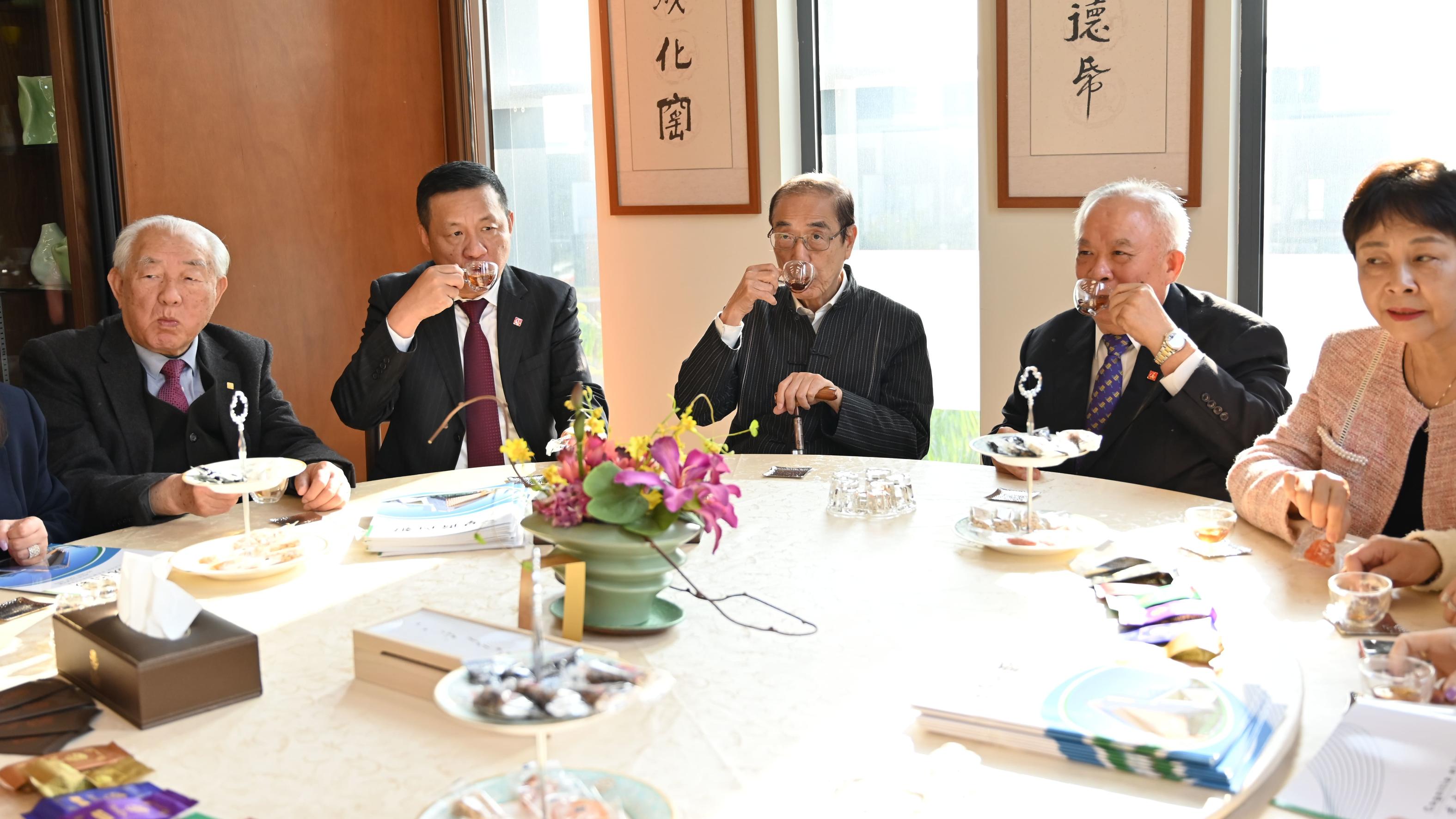 The guests visited the newly completed tea culture room to enjoy a cup of tea on Jan 10, 2024 in Hong Kong Chu Hai College. (PHOTO / HONG KONG CHU HAI COLLEGE)
The guests visited the newly completed tea culture room to enjoy a cup of tea on Jan 10, 2024 in Hong Kong Chu Hai College. (PHOTO / HONG KONG CHU HAI COLLEGE)
Hong Kong Chu Hai College announced on Wednesday that, in cooperation with a charitable education fund and donors, it will establish a tea culture room at its college campus to promote Chinese tea in Hong Kong.
The tea culture center, the first of its kind in a Hong Kong higher education institution, has been made possible with a HK$1 million ($128,000) donation from the Hong Kong Fujian Charitable Education Fund, Jose Yu Sunsay, chairman of HKI Group, and Liu Chi-jen, honorary chairman of HKFCEF and deputy chairman of HKI Land Zhang Zhou project.
HKCHC Executive Vice-president Jane Zhang commended Jose Yu Sunsay’s profound knowledge of tea and tea culture, and said that the establishment of the tea culture room is firmly rooted in and will carry forward Chinese culture
The donation ceremony was held on Wednesday in Hong Kong.
READ MORE: Measures needed to ensure people enjoy a good cup of tea
The center will organize various creative literary courses associated with tea culture and host international exchange events, with the aim of telling China’s story well and promoting traditional culture.
China is the birthplace of tea culture. Tea is deeply integrated into the daily lives and spiritual culture of its people. “Firewood, rice, oil, salt, sauce, vinegar and tea” are regarded as daily essentials, while music, chess, calligraphy, painting, poetry, wine and tea are regarded as being of the highest cultural significance. Furthermore, China’s traditional tea-making has been added to UNESCO's List of Intangible Cultural Heritage.
HKCHC Executive Vice-president Jane Zhang commended Jose Yu Sunsay’s profound knowledge of tea and tea culture, and said that the establishment of the tea culture room is firmly rooted in and will carry forward Chinese culture.
Zhang said she expects the donation to further HKCHC’s research into topics on the “Belt and Road Initiative: Tea Culture”, and to promote tea culture international exchange activities. The donation is of special significance to Jose Yu Sunsay and his family, whose ancestors have been engaged in the tea business since the Qing Dynasty (1644-1911).
On behalf of the donors, Tony Liu, executive director of HKFCEF and general manager of HKI Land Zhang Zhou project, said the organization of tea-culture-related courses and other tea-themed events at HKCHC is both timely and appropriate.
The center offers great opportunities to tell China’s story well, and connects and promotes different tea cultures, Liu said.
Chinese tea culture has a long history. Legend has it that it began in the ancient period of Shennong, but it was not until the Tang Dynasty that it really took off. The Classic of Tea, written by Lu Yu — regarded as the Sage of Tea — is arguably the earliest extant monograph on tea in the world. The book has had a profound influence on Chinese people's tea-drinking habits. Liu Zhenliang, a famous tea connoisseur in the late Tang Dynasty, also said in his book Ten Virtues of Drinking Tea: "Tea can be used to practice morality, and tea can be used to cultivate elegance."
READ MORE: Way too easy to find congenial teas to drink in Hong Kong
Tea culture throughout history often reflects the prevalent social conditions of different eras. The establishment of a tea culture room at HKCHC is expected to open a new chapter in promoting tea culture in Hong Kong. It will serve as a platform to attract different ideas and will play a role in linking to the past and carrying the culture forward.


